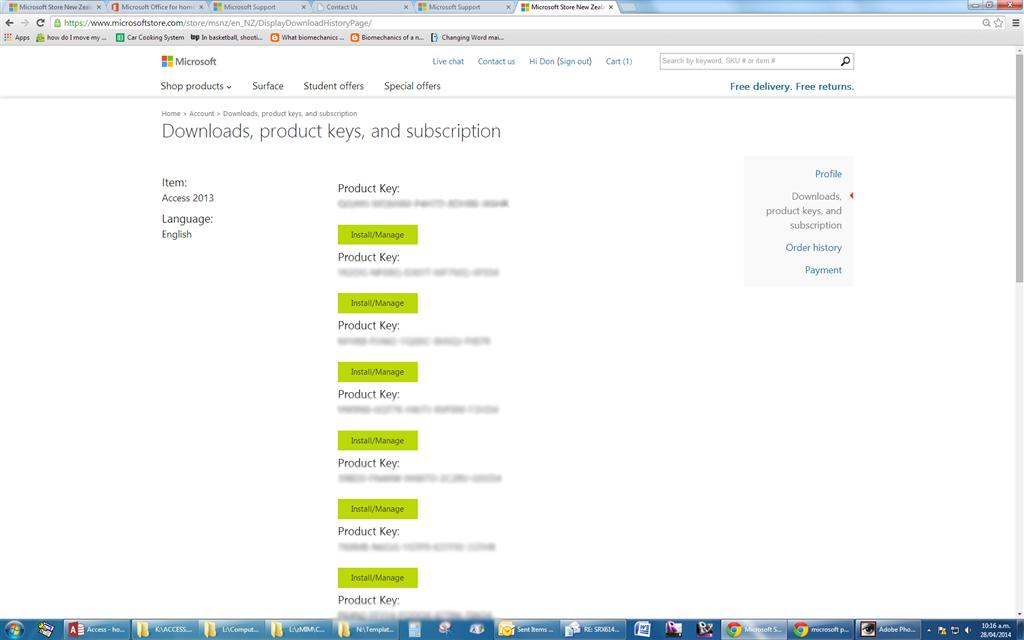Hi, looks like the following issue has been circulating for a few months, and I was wondering if there is a solution yet. This question applies to any product from Microsoft Office 2013 (NOT Office 365), but in my case it is for Access 2013. My small business purchased 14 copies of the standalone Access 2013 download keys (NOT Office 365)
I am now having issues with the activation of a few of them. I know exactly what the reason is, but I can't fix it without Microsoft being assisting at their end.
Here is the background:
When I was installing them, I would log into my account and click on 'Downloads, product keys, and subscription', then click 'install/manage' for one of the 14 product keys, see screenshot:
I then get to a screen that has a bunch of identical Microsoft Access 2013 install, see screenshot below. But as you can see I had no idea which to choose and it seems that I chose the wrong one for some of the users, and got lucky with others. This is obviously a pretty bad system and there doesn't seem to be a way to figure out which keys have been activated and which haven't.
I now have 2 users out of the 14 that cannot activate their Access because I must have given them the wrong key as they say that the key is in use. I was writing down which key was associated for each PC, but it appears that I have written down the wrong key for most of them because of the 'randomly' sorted keys on the second page in the second screen shot above.
So how do I figure out which keys are in use?
I have since learned that the second page sorts the keys on the first page alphanumerically. If I had know this to begin with I wouldn't have this problem. However I still need to know how to figure out which keys I have actually used, otherwise I will have to reinstall every copy until I find one that works, which wastes massive amounts of time.
Before anyone suggests a key finder tool, I know that these tools only return product IDs, not product keys. THESE ARE DIFFERENT NUMBERS. Last time I checked, product keys for Office 2013 are NOT stored locally. Only product IDs are stored locally.
I have noticed this script which some people think returns the key: cscript ospp.vbs /dstatus
But it returns the product ID, not the key. And as the keys are not stored locally it couldn't possibly work.


